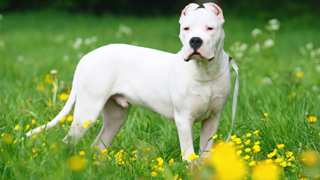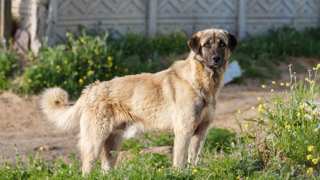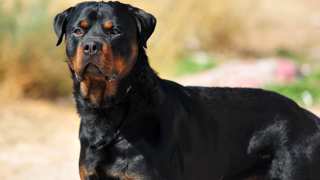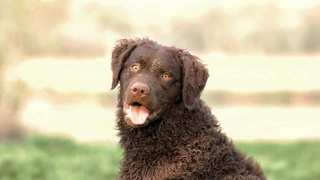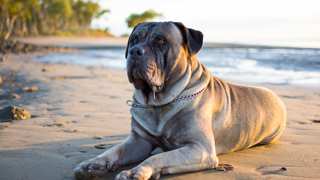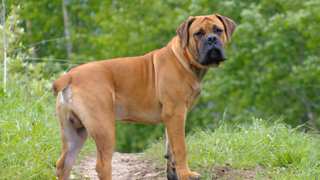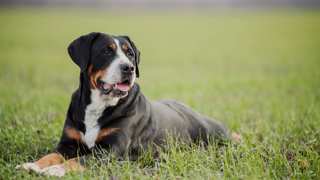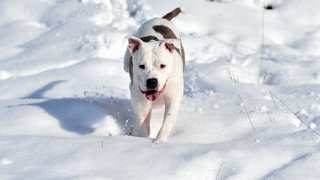As with all breeds, the Cane Corso diet will need to include plenty of animal proteins and carbohydrates for energy, vitamins and minerals for digestive and immune health, and omega fatty acids for coat and skin wellness. This means the best Cane Corso dog food is the premium dry kind, particularly the kind made for large breeds, as it contains balanced portions of the above-listed ingredients. While some owners prefer to feed their Cane Corso a raw diet of fresh meats, vegetables, and other protein sources, many find such a diet to be too expensive and time-consuming, and choose premium dry food instead.
The typical adult Corso, depending on its age, size, and activity level, will need about 4½ cups of dry food per day, divided into two meals. Cane Corso puppy food portions, again depending on age, are only a little less: about three cups of dry puppy food per day, divided into three meals per day (not two) until the age of six months. For further info on feeding your growing dog, here's a handy Cane Corso puppy feeding chart:
Dog AgeDog WeightFood TypeAmountFrequency2 Months15 lbsDry (Puppy formula)0.5 cups3x/day3 Months30 lbsDry0.75 cups3x/day6 Months60 lbsDry1 cup3x/day9 Months85 lbsDry* (Puppy/Adult)2 cups2x/day12 Months+100 lbsDry (Adult formula)2.25 cups2x/day*--Around this time, transition to adult food by first mixing in a bit of adult formula with the puppy formula. Over the course of a week, with each meal add a bit more adult food to the mixture, until the dog is eating it entirely.
If possible, try and stick to the above-listed portions. If constantly overfed (and under-exercised), your Corso can become overweight--and a fat Cane Corso will have joint, breathing, and digestive problems, not to mention a possibly shortened lifespan. You can help control your Corso's weight by having consistent feeding and exercise schedules, by not feeding the dog table scraps, and by not leaving food in the dog's bowl all the time, thereby allowing it to eat anytime it wants. It's better to put your Corso's bowl down only at mealtimes, then pick it up 20-30 minutes after the dog begins eating.
If you're worried your Corso is overweight, give the dog this simple test: run a hand along its side, and if you can't feel any ribs beneath the muscle, it's diet time. Decrease the dog's daily food consumption by one-fourth, and add an extra walk, jog, or play period to its daily exercise schedule.

